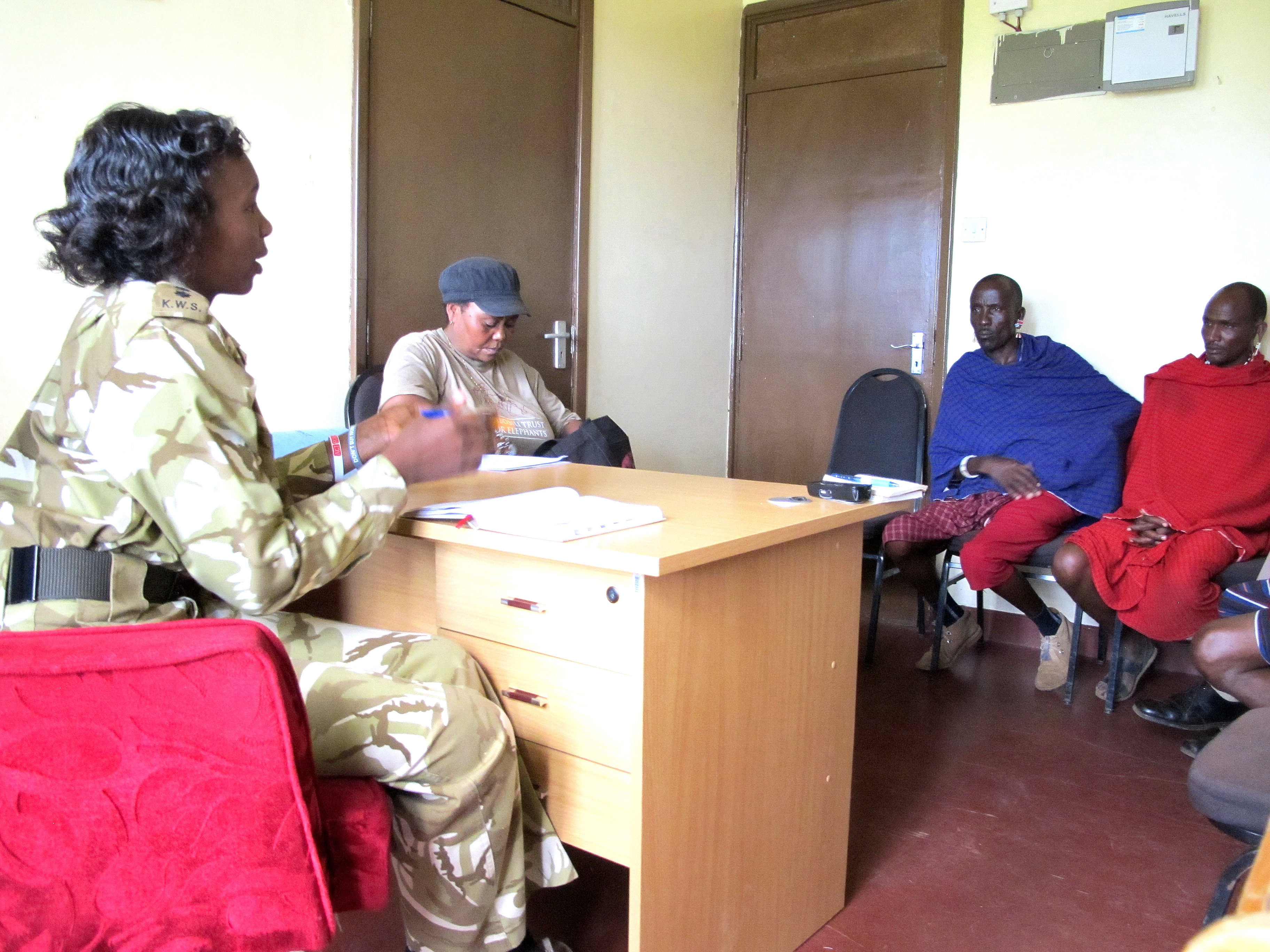
Soila Sayialel of the Amboseli Trust for Elephants is behind the wheel as we drive to headquarters in Amboseli National Park in Kenya for an appointment to pay two men for three cows killed by elephants. The events have been verified by rangers. Why give money? Because when elephants kill cows, men kill elephants. Which makes elephants who've witnessed such encounters more inclined to kill more cows and more men. It's like primitive tribal tit-for-tat warfare that never ends, endless skirmishes and retributions for which there is no solution and no resolution. Except money. Because to the Maasai pastoralists, cows are money. A "condolence" payment handily takes elephants out of the revenge cycle. Where does the money come from? Gifts. Donate online: ElephantTrust.org
Elephants sometimes kill cows but never kill donkeys. Men and boys -- some barely adolescent -- go into the bush with cows. Donkeys are owned by women. And women never accompany their donkeys into the bush -- husbands don't like that (not quite for reasons of their wives' safety, I surmise). So donkeys just roam and return. But men bring livestock into confrontation with elephants. They try to push elephants from watering places, for instance. Men are the flashpoint. When an elephant registers its objection, it sometimes makes its opinion felt. And it may be answered with a flying spear, acutely and sometimes fatally finding its mark.
It's important to remember, though, that over centuries of Maasai occupation, wildlife could persist across immense spans of landscape in their traditional territories. As pastoralists yield to farmers and towns, Maasai herders seem less like the problem and more like the reason there is wildlife here at all. But the relationship isn't always peaceful.
Elephants must leave the Park because it is much too small for them. Outside, they run into herders. Inside, they also run into herders. For reasons ranging from revenge to adolescent bravado to political protest, Maasai have on both sides of the park border sometimes hurt and killed elephants. Elephants fear Maasai people and run from recordings of Maasai -- but not Western -- voices. And occasionally when elephants get a chance to turn the tables, they do. Sometimes cows get killed, and sometimes men get killed.
Today we meet two men who've recently had cows killed by elephants. Both men are middle-aged, tall and thin, their skin shrunken over their cheek bones. Dressed in traditional robes and with long-stretched pierced earlobes hung with beaded pendant earrings, they represent a passing generation and old ways.
In Maa, her native language, Soila explains that they will be paid one fixed price as consolation, not compensation; there will be no haggling over how much a particular cow was worth. The men listen attentively. Abbey Lelai of the Kenya Wildlife Service -- a pretty young woman in her early 20s, pert in her new uniform -- formally thanks the men for entering this process and underscores Soila's message. She emphasizes that the payment system is voluntary, not officially required, and that if they disrespect or abuse it, it can be withdrawn, denied, terminated. To the men, tough talk from women is something new under the sun. But as the sun arcs across the sky, it lights what had been shadowed. Times change.
Rather formally, the men in turn speak. They say that all the animals -- including lions and hyenas -- are good. But they wish to emphasize that they like and appreciate Soila's ways. They say they do not get angry at the elephants because they respect Soila, who is like a mother to the elephants.
But some of the respect they have for her comes from shrewd customer service; herder's complaints about elephant-killed cows get inspected the same day and payment is prompt. The lion people, complain the men, take forever. "If the person is good, it affects the animals under them. If the person is bad, it creates bad feelings."
With everyone's speeches completed, Soila produces an envelope containing cash. The men cannot read or write; they sign for their payment with thumb-prints. But they certainly know how to count money.
Back in the national park we encounter a large herd of elephants commuting out of the swamp toward the hills outside the park where they spend the nights, marching across plains lit now in gold-slanted sunlight.
We watch one family lingering in a deep, lushly vegetated spring-fed pool, blowing water and rolling like hippos while hundreds of other elephants plod across the dusty plains. Maybe the reason is, they're having too much fun to tear themselves away. After a while they move single file to a farther bank and emerge shiny and wet like autos from a car wash. The last to go in is still waiting on the bank with her baby. She is touching the water with her trunk but her baby is acting hesitant. Eventually the mother enters. The baby follows, getting alongside and wrapping her trunk around her mother's tusks for support. The water floats the baby, and with her trunk the mother guides her child along.

